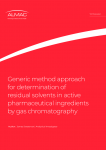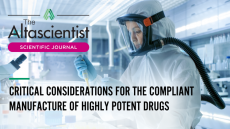Teva takes Sicor to the altar
a powerhouse in generic pharmaceuticals and active pharmaceutical
ingredient manufacturing.
Israel's Teva Pharmaceutical Industries has revealed a plan to buy Sicor in a $3.4 billion (€2.9bn) deal that will create a powerhouse in generic pharmaceuticals and active pharmaceutical ingredient (API) manufacturing.
The cash and equity deal, in which each Sicor share will be exchanged for $16.50 in cash and 0.1906 Teva American Depositary Receipts (ADRs), bolsters the Israeli company's activities in generic injectables and also builds it a position in the emerging biogenerics business.
The deal values Sicor at $27.50, 3 per cent above the company's Friday closing price of $26.78, but a third up on Sicor's share price on October 22, when it revealed it was in merger talks. Analysts have speculated that other companies may wish to get involved in a bidding war for the company, with Switzerland's Novartis, itself a major player in generics, one name that keeps cropping up.
Teva's API division supplies its own needs but also manufactures for third-party customers, while Sicor's makes corticosteroids, hormones, oncolytics, muscle relaxants and antibiotics through its Italian and Mexican subsidiaries.
Commenting on today's transaction, Israel Makov, Teva's president and chief executive, said: "Sicor offers Teva the rare opportunity to extend our clear leadership position in solid oral dose generics into a new segment for Teva in the US, the generic injectables market. " He expects the deal to close in the first quarter of 2004.
Makov added that Teva has been seeking an acquisition opportunity in this field for quite some time, "and Sicor is the prize for our patience." The deal would add to Teva's earnings within a year, he suggested.
There are also signs that the US Food and Drug Administration is prepared to relax the approval criteria for some generic drugs, making it easier for some generic drugs to be approved using a little-used regulatory route - known as 505(b)(2) - that could take years off the registration process.
It has been suggested that his is the most likely route to allow biogenerics to reach the US market, and Teva says it wants to bring this technology in-house so that it will be well-positioned to steer the regulatory course and take advantage of the opportunities presented by biogenerics once they get the go-ahead.
Teva released its third quarter results today and posted a 63 per cent rise in net income to $157 million and net sales up 29 per cent to $813 million. API sales contributed $95 million to the total, a rise of 33 per cent over the same period of 2002.
Meanwhile, Sicor reported on 23 October that its third quarter sales rose 23 per cent to $143 million, with net income of $29 million, up 20 per cent. The company spent $16.5 million on R&D in the first nine months of this year, with the lion's share of that total devoted to proprietary and biopharmaceutical products.














